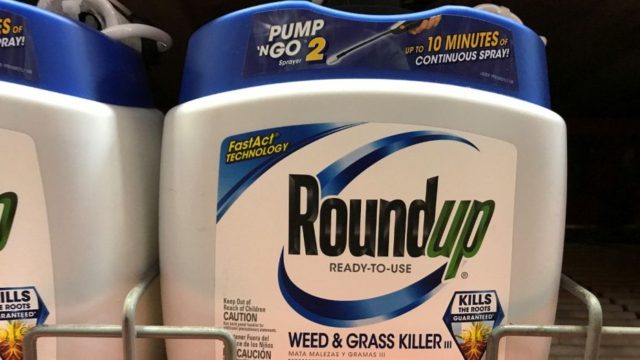More treatment. Stronger oversight. And above all, bolder leadership.

Oxycodone is a narcotic pain reliever, an ingredient of painkillers that have contributed to the current opioid crisis. Photograph: Education Images/UIG via Getty Images
~ Foreword ~
This following article lacks understanding of cause and effect. The government caused the opioid crisis. They made pain the 4th vital sign. Every clinic and hospital was evaluated, surveyed, and rated on whether a pain score was done on each patient and if the pain was helped by the doctor. Ratings and financial rewards were tied to the outcome. ( sounds like the VA scandal doesn’t it? ) Every doctor with a working brain thought this was foolish and would lead to addiction. The Electronic Medical Record has continued this as a performance standard. Babies have their pain score recorded in ER notes. Here is my solution: 1. Dump the pain score. 2. Dump the EMR that depersonalizes medicine. 3. Teach your children that pain during life if normal. 4. Stop pretending that we can prescribe narcotics and they will not be addicting. ~ Rosemary Stein, MD
Continue reading

 A study from Denmark about the birth control pill confirms what is already known about its side effects and dangers.
A study from Denmark about the birth control pill confirms what is already known about its side effects and dangers.
 Gwyneth, watch out.
Gwyneth, watch out.
 When a doctor suggests an operation that you don’t feel is necessary, you have the right to decide not to move forward with it – right? If you happen to have any sort of mental illness, it’s something that doctors could use to say you’re not in your right mind to make such decisions and then go ahead and do as they please regardless of your opinion.
When a doctor suggests an operation that you don’t feel is necessary, you have the right to decide not to move forward with it – right? If you happen to have any sort of mental illness, it’s something that doctors could use to say you’re not in your right mind to make such decisions and then go ahead and do as they please regardless of your opinion.  According to Peter C. Gøtzsche, a Danish physician and medical researcher, prescription drugs are the third leading cause of death after heart disease and cancer.
According to Peter C. Gøtzsche, a Danish physician and medical researcher, prescription drugs are the third leading cause of death after heart disease and cancer. This is what can happen when you go to a socialized healthcare system. A lot of people out there believe that the United States has a free market healthcare system, but that is actually not true. The percentage of the population that receives government-subsidized healthcare is rapidly approaching 50 percent, and the healthcare industry may be the most heavily regulated sector of the entire U.S. economy. Every year the rules, red tape and regulations seem to get even worse, and every year health insurance premiums rise much faster than the overall rate of inflation. If we don’t start applying free market principles and start getting healthcare costs under control, our entire healthcare system could very easily implode.
This is what can happen when you go to a socialized healthcare system. A lot of people out there believe that the United States has a free market healthcare system, but that is actually not true. The percentage of the population that receives government-subsidized healthcare is rapidly approaching 50 percent, and the healthcare industry may be the most heavily regulated sector of the entire U.S. economy. Every year the rules, red tape and regulations seem to get even worse, and every year health insurance premiums rise much faster than the overall rate of inflation. If we don’t start applying free market principles and start getting healthcare costs under control, our entire healthcare system could very easily implode.  Monsanto Co will give cash back to U.S. farmers who buy a weed killer that has been linked to widespread crop damage, offering an incentive to apply its product even as regulators in several U.S. states weigh restrictions on its use.
Monsanto Co will give cash back to U.S. farmers who buy a weed killer that has been linked to widespread crop damage, offering an incentive to apply its product even as regulators in several U.S. states weigh restrictions on its use. 

 RoundUp is carcinogenic – the process it used to reach that determination is fraught with manipulated data and science, altered reports, conflicts of interest and collusion with activist groups and predatory class action lawyers.
RoundUp is carcinogenic – the process it used to reach that determination is fraught with manipulated data and science, altered reports, conflicts of interest and collusion with activist groups and predatory class action lawyers.
 The National Health Service (United Kingdom) is eyeing the cessation of the incessant prescription of Liothyronine, a drug that is used to treat thyroid disorders, after its manufacturer, Oakville, Canada-based pharmaceutical company Concordia International, increased its retail price by 5,662 percent to $12.45 per tablet ($373.35 per month).
The National Health Service (United Kingdom) is eyeing the cessation of the incessant prescription of Liothyronine, a drug that is used to treat thyroid disorders, after its manufacturer, Oakville, Canada-based pharmaceutical company Concordia International, increased its retail price by 5,662 percent to $12.45 per tablet ($373.35 per month).